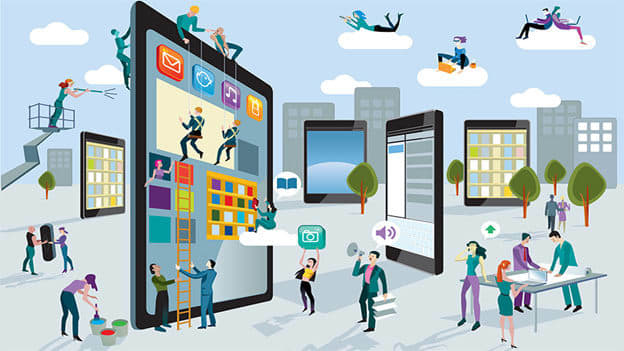HR Technology 4.0 – Emerging trends and new opportunities

Over the last decade, conversations around HR technology was focused on ‘digitizing’ HR – which referred to moving from ‘paper’ based processes to ‘digital’ tools.
A number of companies in the Indian context continue to navigate the shift to digital – particularly India based MSMEs, manufacturing companies and family run businesses. At the same time, companies at already digitized their processes moved towards advanced technologies, they focused on Social media, Mobile, Analytics and Cloud (SMAC). Apart from these, there was ‘Big data’, ‘Advanced analytics’ and ‘Data science’, all of which were hot topics in the world of HR technology.
As we step in to a new era of technologies that are going to radically transform technology systems including AI, ML, IoT, Robotics and Blockchain with tangible business goals like productivity, collaboration and innovation, the emerging trends are going to have a lasting effect on the new world of work.
In this article we take a look at insights from three reports (Josh Bersin’s annual trends, Sierra Cedar and ISG) on the direction that HR technologies are taking in the upcoming future.
1. Increased focus on productivity and employee experience:
As leading HR technology analyst Josh Bersin points out in his annual report – “core HR platforms will evolve from systems of engagement to systems of productivity.” The shift indicates that HR technology is no longer just ‘back room’ technology to be used by HR professionals, systems now have to address the needs of the employees. They need to be easy-to-use, have an intuitive interface and facilitate new models of work – whether that’s gig or a highly mobile workforce.
While companies will have a core HR system in place, they will look for options that help them leverage new innovations in the market place.
2. Need for new organizational capability
New innovations in the marketplace – whether that’s to do with HCM software, employee experience, performance management related technologies, wellness or learning – all require new capabilities in both adoption as optimization.
A report by ISG, a leading global technology research and advisory firm says thatwhile companies continue to make significant investment in advantaged technologies to address complex HR challenges, they need to follow it up with adoption challenge and change management practices.
3. The rise of data governance architectures
Understanding different aspects of your workforce data is going to be critical to define a strong data governance architecture. According to a Sierra Cedar report, as employee data from social media, GPS trackers, wearables, and surveys accumulate, knowing how to ethically use this data will be critical. The report also highlight the strategic importance of a ‘HRIT’ role which will be responsible for data security and configuration decisions.
As companies continue to use a variety of platforms, knowing how to effectively balance data requirements as new global data regimes take shape will define the future of some of these critical new innovations in the new world of work.
4. New markets – expanding scope of innovations and products.
From employee experience to employee listening tools, from wellness to culture tools, from gig work management to next-generation performance management, a number of new innovation are becoming new market areas itself.
For example: A study by the global wellness institute pegged the wellness market at a whooping $43 billion dollars. As lifestyle challenges with stress and overwork become cause for distress and disease, workplaces will see a rise in people strategies that account for personal wellness. Mental health, stress management and mindfulness are focus areas that have a huge potential in enabling people at work. Similarly, niche areas like performance management are undergoing a shift where there is a focus on agile goals, transparency and social recognition etc.,















